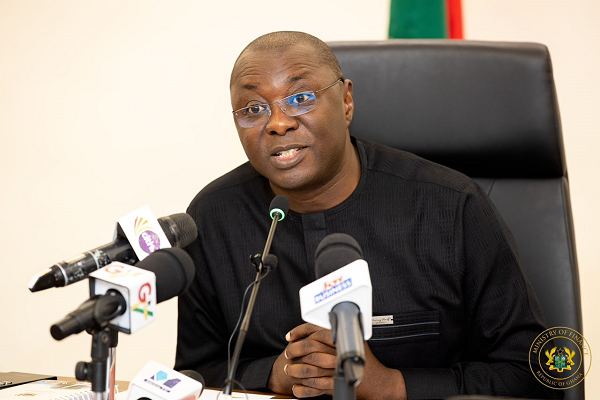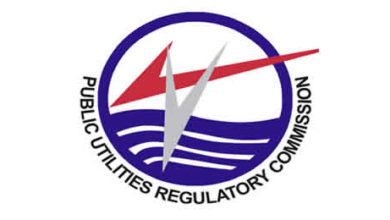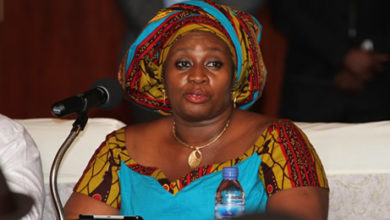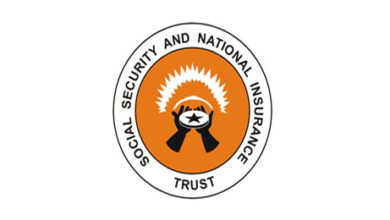Ghana’s human rights record enviable, but more needs to be done, says Attorney General Godfred Dame
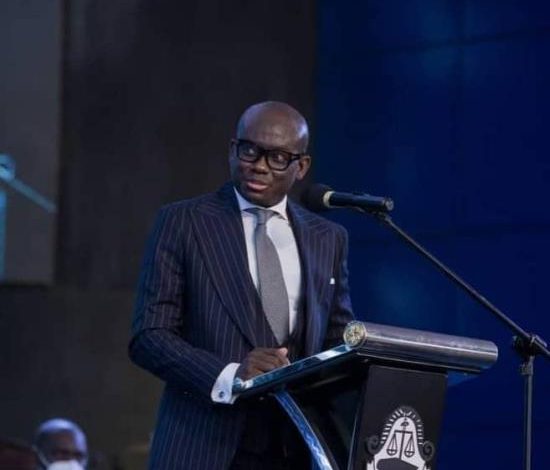
The Attorney General and Minister of Justice, Godfred Yeboah Dame, has said that Ghana’s human rights record is enviable but, however, there remain some areas of human rights that can be improved.
Justifying the observation, AG Dame said “a close study of the history of Ghana shows that the territories comprising the erstwhile Gold Coast, through their body of customary laws, exhibited an innate recognition and respect for some of the very fine principles of human rights, including the sanctity of life; the right to live in community; the right to own property, individual and communal; and the right to a fair trial”.
He added that “upon the formal attainment of independence and the regulation of our lives by a constitution, the country’s human rights protection regime has undergone much transformation, culminating in the most comprehensive system so far finding expression in Chapter 5 of the 1992 constitution” of the republic.
The AG made this assertion when he addressed a public forum at the British Council auditorium organised by the Commission on Human Rights and Administrative Justice (CHRAJ) to mark International Human Rights Day under the theme “The State of Human Rights in Ghana: Progress, Challenges and the Way Forward”.
“I can describe the state of human rights in Ghana in one single phase: ‘Lots of ground gained with some more room for improvement’. This phrase is apt upon a holistic consideration of the state of human rights in Ghana, from the conventional civil and political rights to the critical economic, social and cultural rights,” the Attorney General said.
“The credentials of Ghana as a strong democratic nation with a formidable reputation in the protection of fundamental human rights and freedoms of all persons living here, and with a highly independent and fearless judiciary ready to provide a remedy for abuses, remain unshaken,” Dame added.
Media freedoms
In his address, the learned Attorney General noted that one of the very important pointers to the fact that respect for the fundamental human rights of Ghanaians is growing is the dynamic state of the media in the country.
“If there has been a conspicuous symbol of our freedom as a nation, it is the presence of a free, dynamic and ever highly critical press. The media have been free to comment and publish on virtually any topic at all, uncensored,” he said.
“A random search on TV, radio and other social media platforms reveals an enthusiastic populace willing to communicate and share their views in the media on matters of national interest even where, most of the time, same will be supposedly offensive to the government,” Dame said.
“Media freedom, in my respectful view, cannot under any circumstance be said to be threatened in this country. I am not unmindful of certain isolated incidents of threats and attacks on the media that might have been responsible for Ghana to drop in her recent ranking on the World Press Freedom Index.
“Work has to be done in this regard to boost the image of the nation. It is, however, imperative to point out that the freedoms and rights we enjoy in the nation are not absolute. There is a need for all of us to exercise greater responsibility to safeguard the perpetual enjoyment of those rights and freedoms, including media freedom, by observance of the limitations sanctioned by the constitution and other applicable laws,” he said.
Police relations
Impunity, especially brute violence by the police, said the AG, “was a major issue of concern to human rights campaigners” in Ghana. However, “this phenomenon … is on the decline with deliberate training of all police officers not to engage in acts of torture in the conduct of arrests, investigations, and interrogations”.
“Acts of excessive use of force by police officers are thoroughly investigated, and internal disciplinary mechanisms are properly instituted,” the Attorney General said.
Prisoner rights / JFAP
On the issue of prisoners and prison rights, Dame said “the insufferable statistics of congestion in our prisons are cast in stone. The prevalence of communicable diseases, compounded by inadequate medical facilities, is typical and perennial.”
This situation, the AG recalled, “gave birth to the Justice for all Programme in 2007. A state-led intervention and, no doubt, now fully sponsored by the state, the Justice for All Programme seeks to alleviate prison overcrowding by setting up special courts to adjudicate cases involving remand prisoners in prisons throughout the country.
“It is the product of a focused collaboration between the Office of the Attorney General and Ministry of Justice, the judiciary, the Police Service, Prison Service and the Ghana Bar Association.
“It provided an opportunity for prisoners on remand without trial, or whose trial had unduly delayed, to have a summary review of their cases and for them to be promptly discharged from prison,” Dame explained.
“The Justice for All Programme thus has, so far, provided living waters to quench the thirst of thousands of prisoners who have been beneficiaries. Over the past two years, the Justice for All Programme has received a major shot in the arm with the institution of virtual court sittings.
“This has largely been made possible by the e-justice system devised by the Judicial Service and which is made up of processes, software and hardware which facilitate case management, such as e-filing, judge rosters, case scheduling, courtroom recording systems, electronic notification system and information websites for the public,” he added.
Corruption and human rights
On the fight against corruption, Attorney General Dame noted that “the punishment of corruption requires the establishment of a fair, honest and efficient justice system”. To this end, the AG said, “the need to strengthen criminal justice must sit right at the top of our developmental agenda”.
“Criminals ought to be deprived of their assets in order to reduce the impact of their actions and the inspiration they serve to others on the continent. Crime must not be rewarding.
“I find it extremely unreasonable and unfair for so-called high-profile criminal cases involving the summary offences of fraud, wilfully causing financial loss to the state and money laundering to drag on for years in our courts, whilst similar cases filed against the perceived ordinary members of society are concluded within six months to one year,” Dame said.
“These developments deepen the inequity in our society. The judiciary has to live up to its role in the eradication of corruption. The best way to do so is by the speedy, efficient and just adjudication of cases, especially so-called high-profile prosecutions, as these affirm the principle of equality before the law,” Dame said.
LGBTQI+
On the sensitive matter of LGBTQI+, the AG said he is “aware that a private member’s bill is in Parliament” and in view of “the far-reaching nature of the bill and in furtherance of his constitutional designation, the Attorney General, as the defendant in all civil proceedings against the state (which includes Parliament), and bearing responsibility for the conduct of all civil cases on behalf of the state (including Parliament), I found it necessary to express a view on the validity of the bill, as any unconstitutionality or illegality exposes the state to unwarranted civil actions”.
“I have given an opinion on the bill to Parliament and will soon engage the committee on constitutional and legal affairs to address the issues I have raised with the bill,” said AG Dame.
“It must be underscored, however, that the state abhors all forms of violence and brutality targeted at all persons in Ghana. The state does not lend its support to any person or organisation that advocates the causing of harm to all persons, including those of different religious and sexual orientations,” Dame said.


